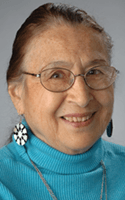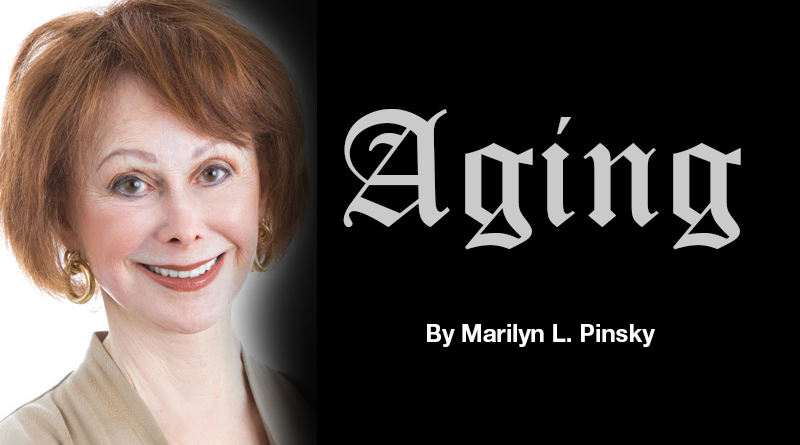Taking Control of the Last Stage of Our Lives
By Marilyn L. Pinsky
The older I get, the more my friends and I talk about preparing for “the next stage of life.” In the back of our minds, we’re really thinking “the last stage.”
As we’re living longer and there are more stages, and therefore more decisions to make, we are preparing as much as we can to be in control of our futures. But because the “last stage” can happen at any time, at any age, and potentially at a time when we might not be in a physical and mental position to make decisions for ourselves, we want to be sure when “it” happens, that our wishes are known.
I know many of us don’t want to think about sickness and death and just say “whatever happens, happens, I’ll worry about it then.” But if we’re not in a position to make decisions and others will have to do it for us, then it’s really not fair to those family members or friends, who will be asked to make decisions on our behalf, to guess what we would want done and then have to live with the guilt of not knowing if they made the right decisions — the ones we would have wanted them to make.
Physician Gregory Eastwood, former SUNY Upstate president, wrote a wonderful book, profiled recently in In Good Health, titled “Finishing Our Story: Preparing for the End of Life.” In an interesting and informative way, ,he lays out the rationale for advance planning using examples of situations where there has not been planning so we can imagine ourselves and our loved ones in those all-too-common situations.
Eastwood gives the steps needed, from getting the right forms, choosing a health care proxy, filling out a living will, and even legally choosing to die when there is no hope left (in those states and countries that permit it, when further living seems futile).
I spoke with two people who have strong opinions about this stage of life.
Take 1

• From Alice Sterling Honig, Ph.D., professor emerita of child development at Syracuse University. She is an internationally known expert in her field and the author of two dozen books and more than 600 articles.
“There are three people who have shaped the way I want to end my days. One was Rabbi David Wolpe who wrote that ‘we need to die in a way to be the best role model to our children so they will not be afraid to die — with acceptance and dignity.’
“Second was my wonderful French friend, Pasha, who went through a terrifying time when the Nazis invaded Paris. Pasha managed to escape with a baby in arms, and she survived the Holocaust. Years later, having lost a child to post-war troubles, Pasha lived on with grace; and I was able to bring her twice to visit America. A decade ago, in Paris, where I felt privileged to visit her every few years, she said peacefully and eloquently in French as I was leaving to return to Syracuse, ‘very shortly, Alice, the great circle of life will be closed,’ and I knew she meant her end was near.
“Third was my mother-in-law Molly Honig, who was four-and-a-half feet tall and a woman with a merry disposition. She developed leukemia and I went to NYC to visit her in the hospital. When her crusted-over eyes had been carefully cleared so that she could open them, a young intern was leaning over her. ‘What do you see?,’ he asked? ‘I see a handsome young doctor,’ she replied. Molly died a few days later. Her positive view of life and her grace as she neared death, remain a deeply precious example for me.
“I am afraid of sickness and pain and I really don’t want to think about it, but nevertheless you have to plan ahead. And not just for your own peace of mind. If you love the child who is going to be making those decisions in the event you can’t, then make the tough decisions now, so they don’t have to agonize over what you’d want done. I have my MOLST form [medical orders for life-sustaining treatment] on the refrigerator that a doctor and two nurses had to sign; it is big and pink and the EMTs run to the kitchen to look for it.”
Both these women’s perspectives have helped me move forward on making those decisions for myself.
To people who say “I don’t want to think about dying,” the way to look at these preparations is that once you’ve made your decisions in a living will, or in discussion with your health care proxy, children or friends, and/or in a MOLST form, or best of all, all three, now you can go back to focusing on living a full life without worrying about what will happen in the event of.…
Take 2
• From Mary Ann Zeppetello, a psychotherapist now in private practice, and a well-known community activist.
“I would like to have the same behavior about my end as my mother. She is my heroine in taking control of the last stage of life, which is facing death while still enjoying life.
“She was an uneducated but intelligent woman who always wanted to be in control of her life and had the foresight to have everything planned. So, in essence, she was also in control of her death. After her first heart attack in her 50s, the coffin was bought, the clothes were in tissue paper, she designed the flowers for the casket, and she pre-paid for everything, including the plot. Periodically she would go to the funeral home to see if she still liked the lining of the coffin. I used to joke with her and say ‘get in the coffin and I will take a picture to help you decide.’ With this advance planning, she made it possible for her kids to fully grieve without being distracted by details of planning a funeral. I wish to do for my children the same as my mother did for me. I owe them that gift.
“Like my mother, I have had conversations with my children and my one grandson to let them know my wishes: that I don’t want to linger if quality of life is compromised. I have a MOLST form and I check with my doctor each time I visit to be sure it is up-to-date in my file. The form is on my fridge and is hard to miss.
“I have been a long-time member of Compassion & Choices, a nonprofit organization that works to improve patient rights and individual choice at the end of life, including access to medical aid in dying. If diagnosed with a terminal illness or one that requires using extraordinary means of keeping me alive, I’d refuse. Instead, I would opt for comfort care to spend the last days of my life while I am in sound mind and able to enjoy whatever is available to me with my family.”

